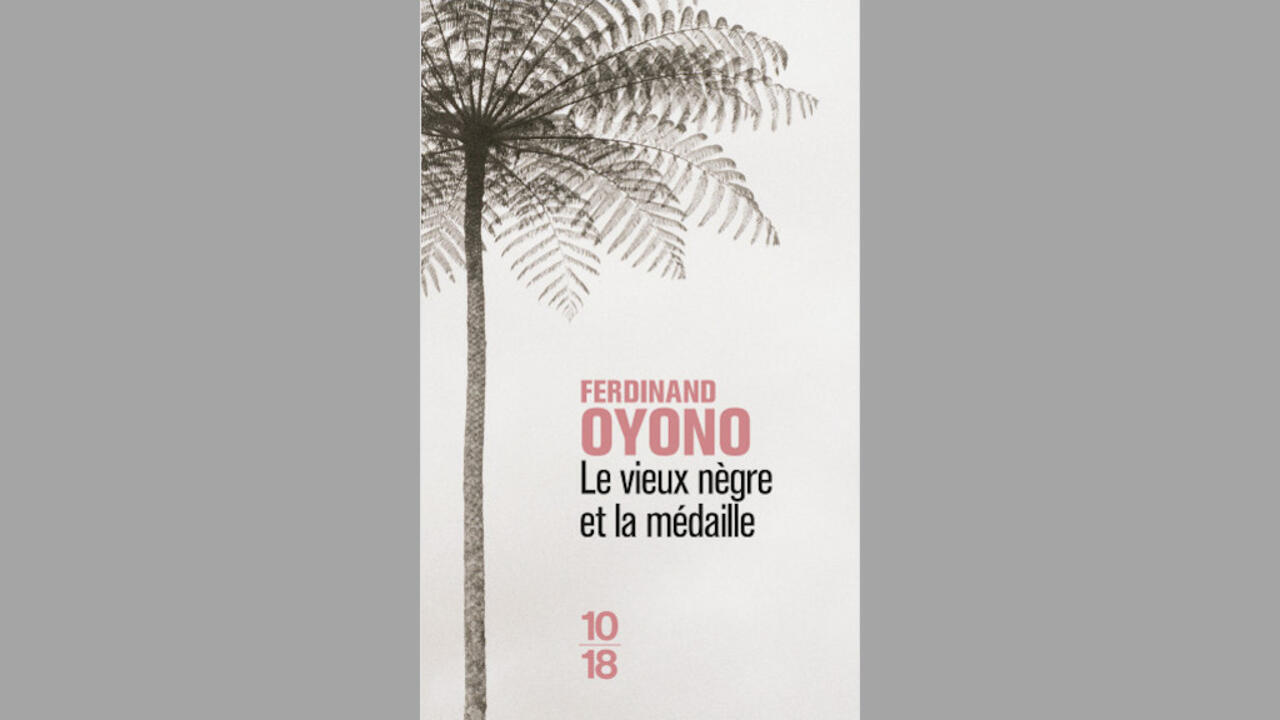"The old negro and the medal", by Ferdinand Oyono
Audio 04:33
By: Tirthankar Chanda Follow
Born in Cameroon in 1929, Ferdinand Oyono is part of the first generation of African novelists in the European language. He was a senior civil servant, diplomat and minister in independent Cameroon. He is the author of three novels, which bear witness to the fortunes and misfortunes of colonial society. The Old Negro and the Medal, published in 1956, is his best-known work and probably also the most original and subtle in its denunciation of the inequities of the dominated African world.
Publicity
Published in 1956, Le Vieux nègre et la médaille has established itself as one of the essential works of the African literary corpus. Why ? Because of its caustic and earthy denunciation of the colonial institution, because of its particularly efficient economy of means which mixes satire and social realism, reviving the colonial universe, with its men, women and contradictions. Along with Mongo Beti, Francis Bebey and a few others, its author Ferdinand Oyono belongs to the very first generation of Cameroonian novelists. Cameroonian fiction is characterized by its refusal to tell a romantic Africa and by its concern to bear witness above all to the social and political realities of the continent.
The critical essay under the title " Black Africa, Pink Literature " published by Mongo Beti in the 1950s denouncing the epigones of negritude who celebrated African life while Africa lived under the humiliating yoke of colonization, sets the tone novels given to read by the first generation of Cameroonian writers. This results in a resolutely anti-colonial, indictment and denunciatory fiction. A product of this tradition, The Old Negro and the Medal offers one of the most ferocious portraits of colonial society, which has earned it today its place in the pantheon of modern African letters.
What does this novel tell ?
The title sums up the pitch of the novel. Oyono tells us about the tribulations of his protagonist Méka, an old peasant from South Cameroon, whom the colonial administration decided to honor by awarding him a medal on the occasion of the celebrations of the national day of July 14. The motherland wants to express its gratitude to this modest old man whose sons " died for France " on the battlefields in Europe. The family also ceded its land to the Catholic mission, which built its Church there. These sacrifices are well worth a decoration.
Méka, for his part, is very happy to receive the distinction from the hands of the High Commissioner who came for the occasion and made a speech for the occasion recalling the humanist traditions of France. In his naivety, the old peasant takes literally the offer of fraternal friendship of the " leader of the Whites " and invites him in turn to come and share the goat at his house. The latter declines the proposal, revealing the gap between the speeches and the truth of relations between blacks and whites in the colony.
Méka himself will become aware of this, when in the evening, after the ceremony which does not take long to turn into a big puppet, he is arrested by the police, brutalized and humiliated for having found himself in the European district of the city without authorization. Under the alert pen of Ferdinand Oyono, the pageantry of July 14 as well as the medal ceremony turn out to be what they really are, nothing other than a hypocritical staging by the colonial powers who proclaim " liberty, equality, fraternity ”, while perpetuating the exploitation-domination of blacks by whites, accompanied by de facto segregation.
Ambiguities and easements
Both an indictment and a work of imagination, Oyono's novel, written in the 1950s and published in 1956, is an exceptional document on the colonial world. He paints the portrait of a dichotomous society, shared between whites and blacks, domineering and dominated, without any possibility of meeting on an equal footing. The only possible exchanges are based on incomprehension, domination and violence. " With the Whites you never know ," proclaims the protagonist Meka at the beginning of the novel, surrendering with some concern to the summons of the circle commander. In these conditions, the presentation of the medal which constitutes the heart of the plot of this novel, can only be a source of disappointments and tensions because it is based on misunderstandings.
It is this lucid writing of the ambiguities and constraints of colonial society, which makes this novel still readable, more than six decades after its publication. It is all the more readable as the lucidity of his words passes through a picturesque language, punctuated by local proverbs and adages. Finally, this story is also very modern, carried by a biting irony which spares neither the white world devoid of moral values, nor the black world which appears, according to the critics, as " weak and irreparably condemned to ineptitude ".
The Old Negro and the Medal , by Ferdinand Oyono. Editions Julliard 1956, available in 10/18 collection pocket.
Newsletter Receive all international news directly in your mailbox
I subscribeFollow all the international news by downloading the RFI application
google-play-badge_FR- Literature
- Books
- Cameroon
On the same subject
Port-Louis Book Fair 2013
When Mauritius welcomes the literatures of the world
Tribute
Edouard Glissant: "The All-World is the new condition of literatures"
Literature / France / Africa
Bernard Magnier: "African literatures have entered the library of the world"

